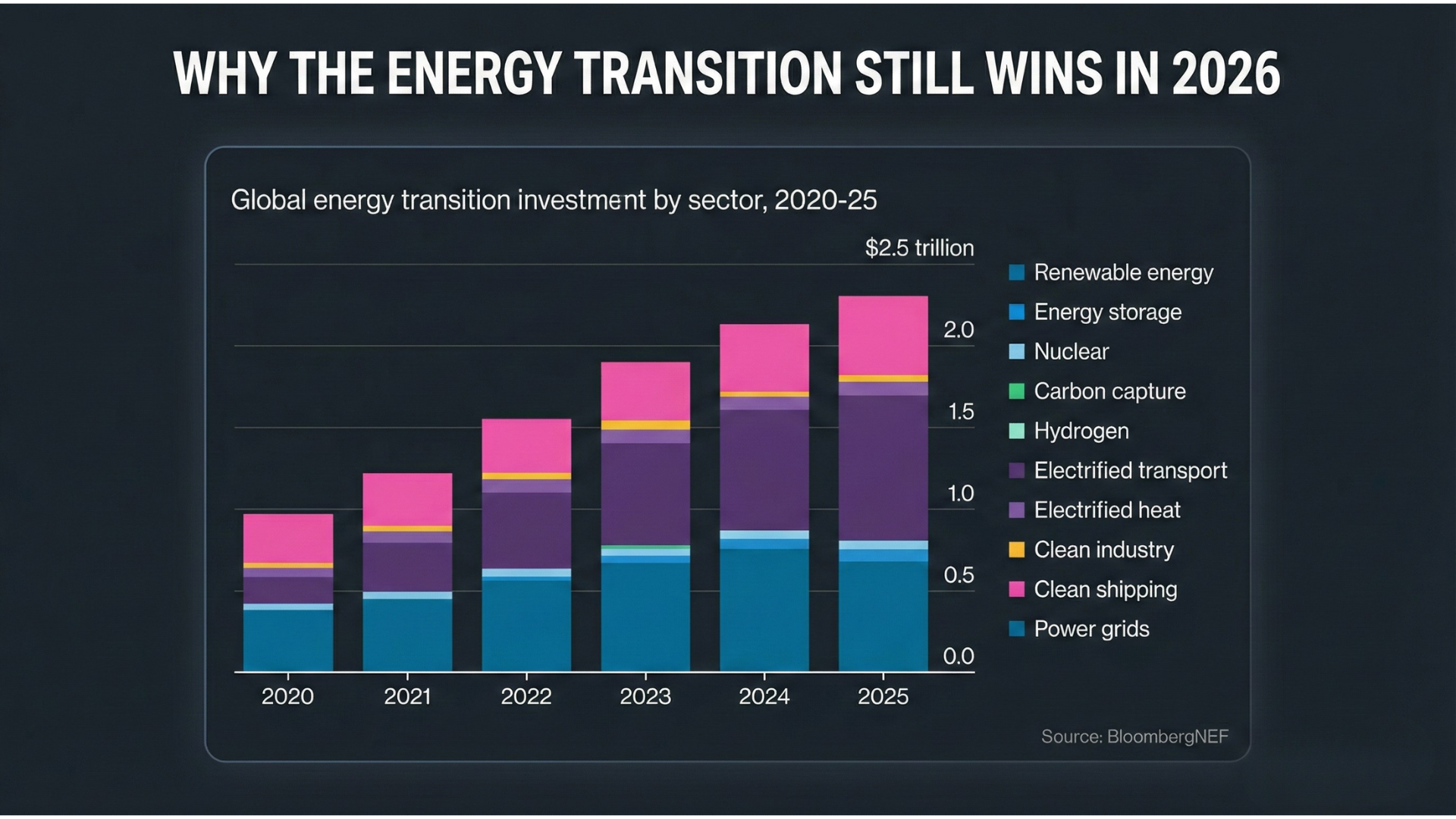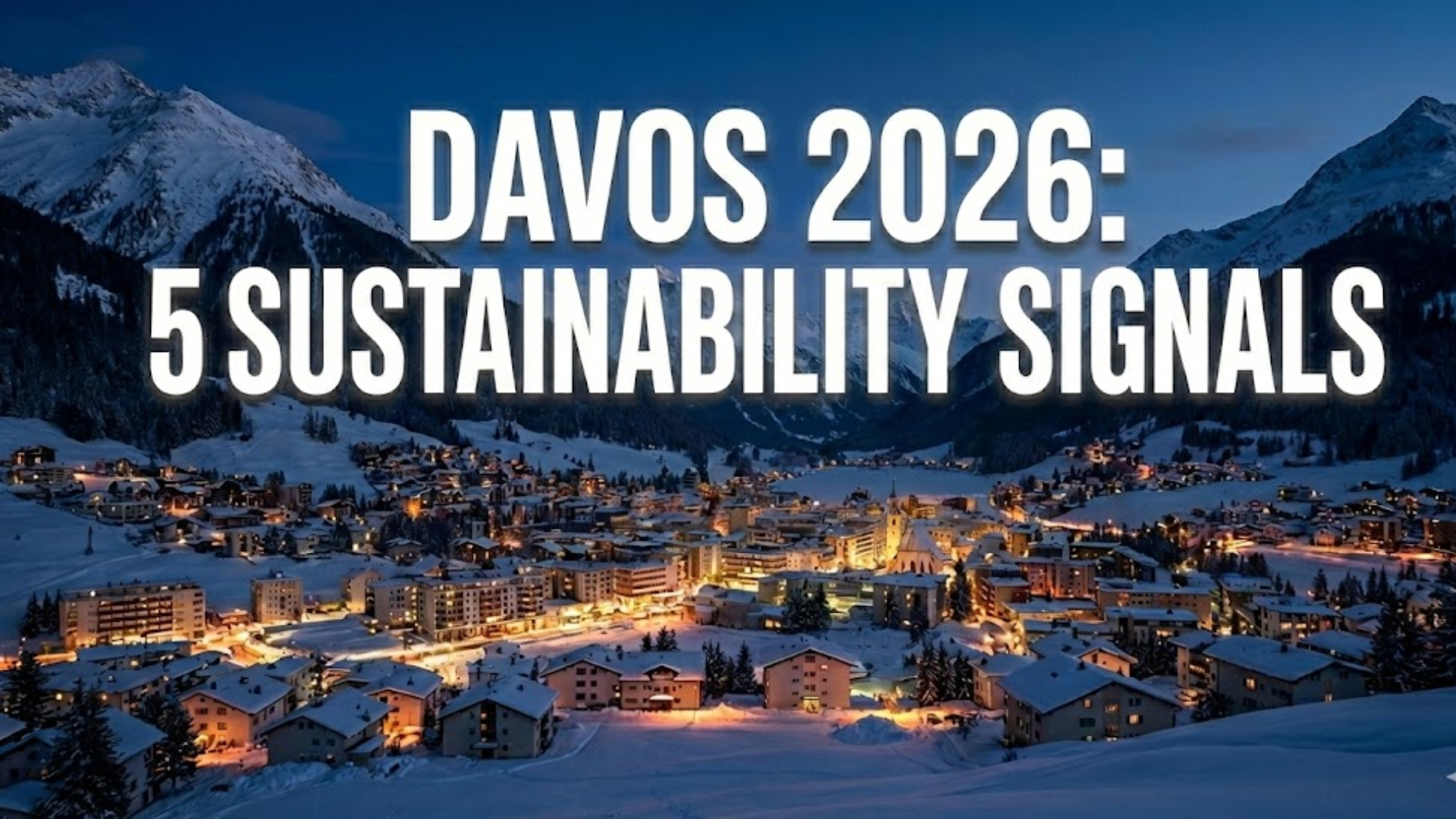

California issued a new checklist for mandatory climate risk reporting
Global asset managers are caught between the US and EU divergence on sustainable investing
Evidence mounts that companies continue to drive sustainability despite US headwinds
DOE climate report faces rebuttals
SBTI releases new power sector net zero standard
With only four months to go now before compliance is required, the updates for California’s Climate Rules are coming thick and fast.
After last month's 2nd public workshop on the rulemaking process (which we summarized here), the California Air and Resources Board (CARB) felt there were still some points that needed clarity. Specifically, companies asked for additional guidance on how to report climate risks (required by SB 261), given that the deadline is so soon (Jan 1st, 2026). In response, CARB released a “draft checklist” this week, which provides additional clarity for climate risk reports:
Pick a Reporting Framework: The law allows the use of existing reporting frameworks such as the Taskforce on Climate Related Financial Disclosures (TCFD), the International Sustainability Standards Board (IFRS-S2), or another regulated reporting regime. The key is to state which framework has been used, the disclosures that were included and those omitted (with reasons why), and future disclosure plans.
Governance: Describe the governance structure for managing climate risk, including oversight and Board involvement where applicable.
Strategy: Describe the impacts of climate-related risks and opportunities on operations, strategy, and financial planning, including any implications on business strategy. CARB recommends, but does not require, qualitative scenario analysis to test the resilience of the strategy.
Risk Management: Describe the method used to identify, assess, and manage climate-related risks and integrate them into overall risk management processes.
Metrics & Targets: Companies only need to disclose the metrics and targets that are material for tracking and managing climate-related risks and opportunities. Emissions-related metrics will be required in June of 2026.
The new CARB guidance also answered four new questions, adding to their existing FAQs:
Exemptions for insurers: Insurance providers from any state are exempted.
Reporting year still unclear: The statute does not specify calendar vs. fiscal year. CARB recommends using the “most recent/best available” data for the first report.
Third-party reports are ok if they meet the law and are made public: Companies may rely on existing third-party climate risk reports (e.g., CDP) if they meet the requirements in the law. These disclosures must be posted on the company’s website and the URL posted to CARB’s docket.
Subsidiaries can be covered by their parent company: Subsidiaries do not need to file separate reports if the parent company consolidates and submits on their behalf.
This policy will evolve over time, but companies will continue to grapple with uncertainty as the reporting deadlines loom. Looking at the bigger picture, CARB and other jurisdictions requiring climate disclosures all build on the same set of standards and frameworks, which have been used for years and provide a clear starting point. Ultimately, all of this comes down to what a reasonable investor would want to know about material climate risk and opportunities.
👉 Prefer to get Sustainability Simplified straight into your inbox instead of LinkedIn? Sign up for our email list here.
2. Stuck Between A BlackRock and a Hard Place
The world’s largest asset manager, BlackRock, has been the target of multiple threats from Republican-led states over the last few years, alleging their investment strategies are ‘woke.’
In response, BlackRock ditched some of its sustainability programs, such as membership in the Net Zero Asset Manager Alliance (NZAMA) and Climate 100+.
This week, a Dutch pension fund, one of the biggest in Europe, took €14bn out of BlackRock-managed investments, as well as €15bn from UK asset management firm LGIM. The move came after the pension fund updated its investment strategy to weigh financial and sustainability performance equally.
This move creates a dilemma for BlackRock and other international asset managers: They are under intense pressure in the US to move away from sustainable investing, while asset owners in Europe, the UK, and other locations double down on sustainability.
The anti-ESG movement in the US suffered a setback this week when a Texas judge issued a preliminary injunction against a law that would have required proxy advisors serving Texas companies to disclose whether any ESG or diversity, equity, and inclusion factors influenced their advice. The case brought by two of the country’s leading proxy advisors, Institutional Shareholder Services and Glass Lewis, blocked the law, with the presiding judge writing that it is “void for vagueness.”
3. Companies Stay Focused on Sustainability
Last month, our “What Sustainability Recession?” edition went viral. Readers responded to the glimmer of a turnaround in the recent drumbeat of negative news, dubbed the sustainability recession by iconic John Elkington.
This week, two new studies emerged that seem to confirm that companies are staying the course on sustainability:
New Forbes research found that 79% of companies now have a Chief Sustainability Officer (CSO). Confirming the strategic importance goes beyond the title. 96% of CSOs report directly to the chief executive officer/board of directors. And 93% of the executives surveyed expect their sustainability budgets to increase this year, up from 86%.
3BL’s new survey, “Say Less, Risk More: Sustainability Silence is Undermining Trust,” found that 66% percent of U.S. consumers believe businesses should continue their sustainability efforts regardless of the political climate. Yet many corporate communicators feel pressure to pause or scale back their messaging, especially in the U.S., where political scrutiny is rising. In fact, media mentions of top companies tied to sustainability have already dropped more than 10% in the first four months of 2025 compared to last year.
4. DOE Climate “Science” Report Receives Backlash

Late last month, the Department of Energy (DOE) released “A Critical Review of Impacts of Greenhouse Gas Emissions on the U.S. Climate,” which claimed that CO2 has little to no adverse effects on humanity and that climate change is overblown.
In rebuttal, a group of 85 climate experts released a 439-page review claiming that the DOE report fails to "adequately represent the current scientific understanding of climate change," cherry picks data, and misrepresents other research.
The chapter-by-chapter review culminated in a call to discredit the DOE report. Andrew Dessler, an atmospheric scientist who led the review, said, “Their goal was to muddy the waters, to put out a plausible-sounding argument that people can use in the public debate to make it sound like we don’t know whether climate change is bad or not.”
5. New SBTi Guidance For the Power Sector
The Science-Based Target initiative (SBTi) released the initial draft of its Power Sector Net-Zero Standard. The draft is designed to help companies across the power sector set and achieve near- and long-term net-zero emissions reduction goals by 2050.
The draft, the latest in a series of net-zero standards for hard-to-abate sectors, will be controversial to some as it includes a requirement for companies to phase out unabated fossil fuel capacity. This requirement may deter many in the fossil fuel power generation sector from aligning with SBTi.
The views expressed on this website/weblog are mine alone and do not necessarily reflect the views of my employer.
Other Notable News:
Sustainability Research
COP30
Sustainability Regulations
EU Sustainability Regulations
Trump 2.0
Energy Transition
Greenwashing
Notable Podcasts:
In this week’s edition of the Outrage and Optimism podcast, the hosts look at the promise and pitfalls of AI. They speak with the founders of the Earth Species Project, a group utilizing AI to record the sounds of endangered species before they become extinct.







